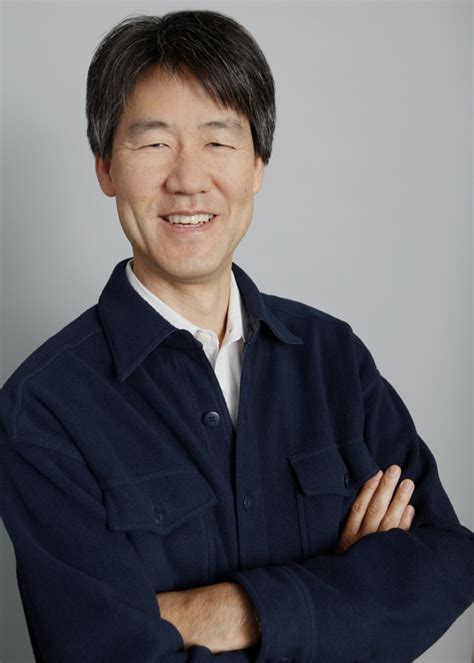Top 155 Substantive Quotes & Sayings - Page 3
Explore popular Substantive quotes.
Last updated on November 27, 2024.
I don't think I'm more politically-based as much as socially-based. My grandmother died on February 29th, and she kept all of my magazine and newspaper scraps, every interview. I've been in the newspapers since I was about 15 - not for rapping, but for real substantive stuff I was doing in the community, organizing around gang violence in the schools. So I had already made my grandma proud before I was on TV. I've always been who I am.
I really do think Trump's election comes down to respect. It comes down to being gracious. It comes down to really showing compassion for the problems of the black and Latino communities. And I really hope that Donald Trump takes the ball that's in his court and tries to go after those voters, tries to show some compassion, and really offers them something substantive to get excited about Republican and conservative policy.
Any first-order, substantive normative theory worth its salt will require attention to the mental states of agents in a variety of quite complex ways. But realism, being a view about the status of such normative theories, insists that the truth of any firstorder normative standard is not a function of what anyone happens to think of it.
When the copulative kai [`and'] connects two nouns of the same case, [viz. nouns (either substantive or adjective, or participles), of personal description, respecting office, dignity, affinity, or connexion, and attributes, properties, or qualities, good or ill], if the article [ho], or any of its cases, precedes the first of the said nouns or participles, and is not repeated before the second noun or participle, the latter always relates to the same person that is expressed or described by the first noun or participle: i.e. it denotes a farther description of the first-named person.
For the other end of the spectrum, the 50 to 85 percent of the world's population who are not the recipients of privilege, the world they know is almost certainly worse than any their earlier counterparts knew. It is likely they are worse off materially, despite the technological changes. In substantive as opposed to formal terms, they are more, not less, subject to arbitrary constraints, since the central mechanisms are more pervasive and more efficient. And they bear the brunt of the various kinds of psychic malaise, as well as of the destructiveness of civil wars.
You know in fairness Gary [Johnson] and I have not agreed on a number of substantive issues in this campaign, tax policy, we've had some influence on each other, I think I've had some influence on him, on constructive engagement around the world, he's had some influence on me in criminal justice reform issues.
I like the fact that they still run substantive pieces. I'm not sure I like the pieces, but it's nice that they do that. Anyway, it was always sort of ridiculous, me having anything to do with the youth culture, but now that I'm in my 50s, it's extra-double-ridiculous. They were losing interest in me, and I was losing interest in them. When I went to renegotiate my contract at Rolling Stone, I kind of halfheartedly asked if I could do half the work for half the money, and they asked if I could do two-thirds of the work for half the money. I ran that by my agent, since he can do math.
It never really felt like I had a lot of substance in my life. I had broken up with my former husband (Ron Samuels) and I kind of looked around. I didn't have a lot of friends. I had become isolated by fame. I longed for a family and some substantive relationships. Fame is a vapor. You can't grab hold of it.
I fully agree with all that you say on the advantages of Spencer's excellent expression of 'the survival of the fittest.' This, however, had not occurred to me till reading your letter. It is, however, a great objection to this term that it cannot be used as a substantive governing a verb; and that this is a real objection I infer from H. Spencer continually using the words, natural selection.
The vicious cycle of violence is real. But if people simply stopped listening to their ignorant parents, their biased religions, their corrupt government and the prejudicial media, change would be quite easy. All it takes is courageous, fearless, unique individuals to make substantive change in this world. Unfortunately, there are very few courageous and fearless people.
There was only really one time that I had a substantive interaction with the president [Barak Obama] directly, and that was in 2013 when we were deciding whether to file a brief in the first gay marriage case, the Perry against Hollingsworth case. That was a weighty decision about whether the United States government was going to come in and say that heightened scrutiny ought to apply and some state bans on same-sex marriage ought to be unconstitutional. And that was the one time in my tenure where I thought I ought not make this decision without talking to the president.
From the very beginning, our state and national constitutions and laws have laid great emphasis on procedural and substantive safeguards designed to assure fair trials before impartial tribunals in which every defendant stands equal before the law. This noble ideal cannot be realized if the poor man charged with crime has to face his accusers without a lawyer to assist him.
I cannot disagree with you that having something like 500 economists is extremely unhealthy. As you say, it is not conducive to independent, objective research. You and I know there has been censorship of the material published. Equally important, the location of the economists in the Federal Reserve has had a significant influence on the kind of research they do, biasing that research toward noncontroversial technical papers on method as opposed to substantive papers on policy and results
Bill Clinton gives the appearance of taking stands-for some sort of tax cut, some sort of welfare reform, some sort of balanced budget-but these are ploys, mirages: they exist only to undermine positions taken by the Republicans. He doesn't fight for anything substantive-except of course, re-election. ...He has fallen into the dangerous habit of lip synching the presidency: he gives the appearance of leadership, but not the substance.
Why doesn't anyone address the substantive question of why other states blatantly interfere in Israel's internal affairs? Israel does not meddle in the affairs of other states in a similar way, so why do other countries feel entitled to do this to Israel? These actions violate Israeli sovereignty and I expect European Union member states to act differently.
There are black Christians, and black Muslims in Africa who are being slaughtered, they don't want to hear about the Jim Crow laws. There are Christians, there are other Muslims being slaughtered in the Middle East, they don't need a lecture from Obama about Christianity. The fact of the matter is Obama is not doing anything effective or substantive to stop genocide in our time.
Let me say something at the outset. The questions that have been asked so far in this debate illustrate why the American people don't trust the media. This is not a cage match. And, you look at the questions - "Donald Trump, are you a comic-book villain?" "Ben Carson, can you do math?" "John Kasich, will you insult two people over here?" "Marco Rubio, why don't you resign?" "Jeb Bush, why have your numbers fallen?" How about talking about the substantive issues the people care about?
We also discussed [with the President of Mexico] the great contributions of Mexican-American citizens to our two countries, my love for the people of Mexico, and the leadership and friendship between Mexico and the United States. It was a thoughtful and substantive conversation and it will go on for awhile. And, in the end we're all going to win. Both countries, we're all going to win.
We have been making constant efforts, all the time, to start dialogue with the SLORC, but you know it takes two. We don't want a monologue. We would like a substantive political dialogue among the SLORC, political leaders including myself, and leaders of ethnic groups-exactly as stipulated in the U.N. General Assembly resolution on Burma.
It is not just that it is profoundly offensive to the leaders and people of a democratic Germany to paint Hitler on the wall (or on the remnants of the Wall). It is also consummately counterproductive. Such sauce does not make the meat of substantive criticism more interesting. It means that the whole dish is pushed away. It does not mean that Britain's voice is listened to more attentively in the councils of Europe. It means that it is listened to even less.
As many people know, our job market problems began long before the latest recession. We have faced literally decades with no substantive increase in median wages, and job growth, except in health and government jobs such as education, has been stagnant for a while. People are now expected to travel more and to work at odd hours to coordinate with people all over the world. Simply put, companies have prospered, but for the most part, people have not.
Why does the left hate free speech? Because they don't know how to talk about the substantive merits when they are challenged. Having submerged themselves in disciplining each other by denouncing any heretics in their midst, they find themselves overwhelmed and outnumbered in America, where there is vibrant debate about all sorts of things they don't know how to begin to talk about. They resort to stomping their feet and shouting "shut up"... when they aren't prissily imploring everyone to be "civil."
Donald Trump in Philadelphia, and he's delivering a very substantive speech on military preparedness, the status of the current military. He detailed the deterioration of the U.S. military in the past eight years and explained how he's going to rebuild it and why we need to, and it's a very tough audience. It's an expressly military audience, and they are of course listening for any sign that he's not really genuine here. I think, knocking this out of the park as far as that audience is concerned.
Loyalty saves us from the self-advantaging compromising of important relations - such as friendship, marital and professional commitments, group memberships, and so on. But as the Aristotelians would put it, its expression requires phronesis - wisdom not to allow it to compromise other important virtues ,there is something to the ancient doctrine of the unity of the virtues. I believe that is true of all virtues, but especially of the executive virtues - such as industriousness, sincerity, conscientiousness, and courage - which may become detached from substantive goods.
The reason for teaching history is not that it changes society, but that it changes pupils; it changes what they see in the world, and how they see it.... To say someone has learnt history is to say something very wide ranging about the way in which he or she is likely to make sense of the world. History offers a way of seeing almost any substantive issue in human affairs, subject to certain procedures and standards, whatever feelings one may have.
You can't remember sex. You can remember the fact of it, and recall the setting, and even the details, but the sex of the sex cannot be remembered, the substantive truth of it, it is by nature self-erasing, you can remember its anatomy and be left with a judgment as to the degree of your liking of it, but whatever it is as a splurge of being, as a loss, as a charge of the conviction of love stopping your heart like your execution, there is no memory of it in the brain, only the deduction that it happened and that time passed, leaving you with a silhouette that you want to fill in again.
From this day forward, I no longer shall tinker with the machinery of death. For more than 20 years I have endeavored - indeed, I have struggled - along with a majority of this Court, to develop procedural and substantive rules that would lend more than the mere appearance of fairness to the death penalty endeavor. Rather than continue to coddle the Court's delusion that the desired level of fairness has been achieved and the need for regulation eviscerated, I feel morally and intellectually obligated to concede that the death penalty experiment has failed.
Probably the single-most concrete and substantive thing an American, young American, could do to lower our carbon footprint is not turning off the lights or driving a Prius, it's having fewer kids...we'll soon see a market in baby-avoidance carbon credits similar to efforts to sell CO2 credits for avoiding deforestation.
Faith in the biblical sense is substantive, based on the knowledge that the One in whom that faith is placed has proven that He is worthy of that trust. In its essence, faith is a confidence in the person of Jesus Christ and in His power, so that even when His power does not serve my end, my confidence in Him remains because of who He is.
It would be a mistake to believe that one could come to any substantive understanding of politics by discussing abstractly the good, the right, the true, or the rational in complete abstraction from the way in which these items figure in the motivationally active parts of the human psyche, and particularly in abstraction from the way in which they impinge, even if indirectly, on human action.
I have taught the long poem off and on for years. The more book-length poems I read and studied and taught the more interested I was in the possibilities in writing a poetry that applied formal and substantive options of narrative and non-narrative, lyric and non-lyric. I found many pleasures in this kind of writing. The long poem is as old as the art form.
I don't think that developing countries gained from a two-stage process. A single phase summit (which is, after all, a two year process, not a three day event) would have built awareness, and would probably have led to more substantive conclusions at the end of the first summit meeting. Civil society may have gained a bit more from the networking experience, but it was less effective at networking in the second phase.


































